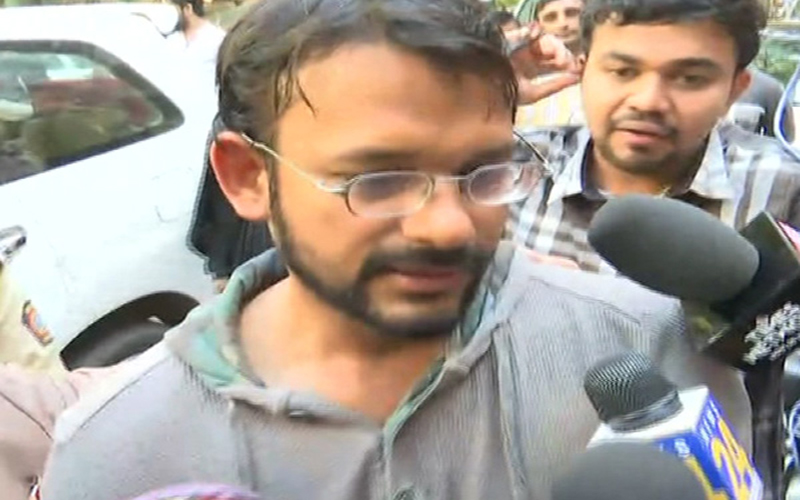Mumbai: Hamid Ansari the Indian national who was captivated in Pakistan for the past six years for illegally entering Pakistan border through Afghanistan is slowly returning to his normal life in Suburban Mumbai.
Returned with two hand-made velvet paper boxes he made during his time spent in Pakistani Jail as a reminder he somehow managed to make bracelets using beads, he also had a rosary, a pen and a keychain along with the bracelet, these items are placed in the showcase of his home, Indian Express reports.
“I learnt it, just like cooking, in prison,” says Hamid who is now 33. His hair got thinned and complexion got darker too. Three weeks since returning to India from Pakistan, he is busy getting on with his life.
“A few days ago, I went to a friend’s place in Andheri. My mother kept calling to check on me,” he says, indicating the restlessness that has got into his mother after staying away from him for so many years.
Hamid’s mother Fauzia Ansari, 59, admits it. She said: “I get restless every time he leaves the house.”
An IT engineer and MBA graduate, Hamid left home saying he got a job interview at Kabul in November 2012.
And just a week later he illegally entered Pakistan through Torkham in the hope to rescue the love of his life a 25-year-old Khattak tribal girl he had met on social site, who were forcibly marrying her off, as part of a tribal punishment for a crime by her male relatives.
Hamid was then arrested on November 14, 2012, and handed over to Military Intelligence and the ISI. Until three years, Hamid was kept in a military jail, in solitary confinement slapped with charges of espionage.
Narrating his ordeal in Pakistani Jail, he says: “They would make me stand for a week during interrogation and not allow me to sleep. Sometimes they would make me sit for days. I couldn’t digest my food, I would vomit, lose consciousness, and I could not differentiate between day and night,” he said.
In the year 2015, he was shifted to another military prison in Peshawar while in the meantime, Naz a Pakistani journalist was trying to trace him by this time, at his mother’s request.
The journalist visited the Tribal girl’s house in the year 2014 and filed an application with the Supreme Court’s Human Rights Cell. But on August 19, 2015, she was kidnapped in Lahore, and remained missing for two years.
Months after the journalist’s disappearance, in December 2015, Hamid was presented at the military court. “I was given a defense lawyer but he backed off. I was handcuffed and blindfolded and left to defend myself,” Hamid says.
Here Hamid’s mother got in touch with Advocate Qazi Muhammad Anwar and human rights activist advocate Rakshanda Naz in the year 2015.
It was in the year 2016 when Hamid finally received his first-ever visitor at Peshawar Central Jail — Naz. That made him realize that there were people working for his cause Hamid says.
Hamid’s prison life took a routine eventually with so many years spent in solitary. The cell would be opened between 11 am and 2 pm. He would wash his utensils and clothes, cook and bathe.
And to earn money in the meantime, he says, “Hum tadke ka tel jama karke bechte the (He would collect used oil from food and sell it to other prisoners),” adding he managed to sell seven-eight little bottles of oil every month and with this money, he would buy beads from in-prison shops and make things to sell to other prisoners.
Pointing to the red paper boxes, he says, “I gave all this to Rakshanda ma’am,” which he says, she gave it to his mother to show what he had crafted.
Advocates Anwar, Naz, the Pakistani journalist, and activist Jatin Desai, there is one more person that made Hamid’s return possible with her statement. She was the girl Hamid fell in love with over Facebook though they never met before, gave her statement in his favor when the officials visited her.
Hamid has applied for a new passport for Hamid, to offer umrah, a vow his mother has made for his safe return.

